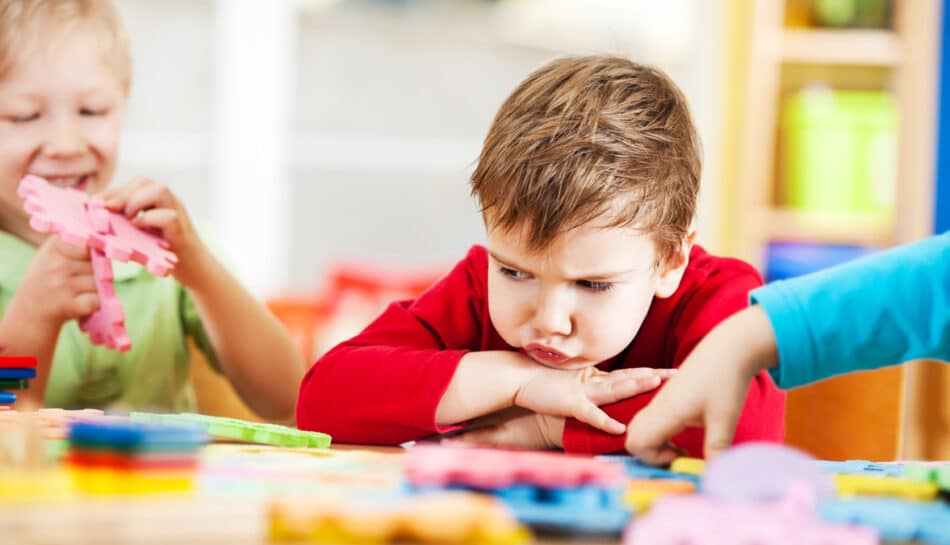When parents enroll their children in a sport, they hope to see them develop skills that will make them stronger and smarter. In sportboys must successfully follow rules, curb their wants and needs, and learn to behave well. Through contact with peers and supportive coaches, they learn to persist and thrive in the face of adversity.
The benefits of sport in children
Could playing sports also make them more successful academically, not just in school but in college and beyond? A new Canadian study suggests that yes, it can. The research from a team led by Université de Montréal psychoeducation professor Linda Pagani was published this month in Medicine & Science in Sports & Exercise .
Examining associations between long-term participation in childhood sports during the primary school years and later indicators of academic success, researchers analyzed data from the Quebec Longitudinal Study of Child Development, coordinated and hosted by the Institut de la Statistique du Québec.
Some 746 girls and 721 boys born in 1997 or 1998 were followed to see if there were links between participating in a sport between the ages of 6 and 10 and later academic success through age 17. And, indeed, there were, in both sexes.

“We found that participation from kindergarten through fourth grade had a positive effect, above and beyond other factors, all the way through high school,” Pagani said.
Children who regularly played sports were more likely to get better grades and were less likely to drop out by their senior year of high school than those who played little or no sports. They also placed more importance on how they did in school and had higher academic aspirations for continuing their education in college and university.
“Mid childhood is a critical time in a child’s development,” Pagani said, “and parents want their children’s free time to count for something. However, until now, with this study, despite significant investment from parents and communities, there has been no compelling evidence on the unique contribution of youth sports to academic success.
“We now know that by participating in organized sport, young people develop a positive self-image and social skills that teach them the importance of teamwork, taking responsibility, and developing and maintaining relationships, and that this translates into better academic performance in adulthood.”
Girls benefit from sports
According to a Canadian study published in Preventative Medicine, girls (but not boys) who actively participate in school sports during childhood show better behavior and attention in early adolescence.
“Girls who regularly participate in extracurricular sports between the ages of 6 and 10 show fewer symptoms of attention deficit/hyperactivity disorder (ADHD) at age 12 than girls who rarely do so,” said Linda Pagani, a professor at the Faculty of Psychoeducation at the University of Montreal.
“Surprisingly, however, boys did not appear to derive any behavioral benefits from continued participation in sports into middle childhood,” said Pagani, who led the study co-authored by his students Marie-Josée Harbec and Geneviève Fortin and McGill University associate professor of medicine Tracie Barnett.
As the team prepared the research, “it was not clear to what extent organized physical activity was beneficial for children with ADHD symptoms,” Pagani recalled.

“Past studies have varied greatly in quality, obscuring the true association between sports and behavioral development.” She added: “Furthermore, “past research has failed to recognize that boys and girls differ in how they present with ADHD symptoms.”
ADHD impairs children’s ability to process information and learn in school, Pagani explained. Sports help young people develop life skills and supportive relationships with peers and adults. It provides an opportunity to organize themselves under some form of adult influence or supervision.
“Therefore, from a public health perspective, extracurricular sport has the potential to be a positive, non-stigmatizing and engaging approach to promote psychological well-being and could therefore be seen as a behavioral therapy for youth with ADHD,” Pagani said.
“Sports are particularly beneficial if they begin in early childhood. And so, because the use of concentration and interpersonal skills are essential elements of sports, in our study we set out to examine whether this would lead to reductions in ADHD symptoms in the long term.”
Pagani and his team reached these conclusions after examining data from a cohort of Quebec children born in 1997 and 1998, as part of the Quebec Longitudinal Study of Child Development coordinated by the Institut de la statistique du Québec.

Parents of the 991 girls and 1,006 boys in the study reported whether their sons and daughters participated in an extracurricular physical activity that required a coach or instructor between the ages of 6 and 10. At age 12, teachers rated the children’s behavior relative to their classmates. Pagani’s team then analyzed the data to identify any significant links between sustained participation and later ADHD symptoms, ruling out many possible confounders.
“Our goal was to eliminate any pre-existing conditions in the children or families that might shed a different light on our results,” Pagani said.
Why do girls with ADHD benefit from sports, but boys don’t?
“During childhood, boys with ADHD are more impulsive and have more motor skills than girls, and as a result, they are more likely to receive medication for their ADHD, so more rapid diagnosis and treatment for boys in later childhood could diminish the detectable benefits of sports,” Pagani said. “They may be there; they are just harder to spot.”
“In girls, on the other hand, ADHD is more likely to go unnoticed, and girls’ difficulties may be even more tolerated at home and at school. Parents of boys, on the other hand, may be more likely to enroll them in sports and other physical activities to help them.”

She added: “We know that sports activities have numerous other mental health benefits for all children. However, for reducing ADHD symptoms, middle school sports in elementary school seem more noteworthy for girls.”
That’s why structured extracurricular activities that require physical skill and effort under the supervision of a coach or instructor could be valuable to any official policy aimed at promoting behavioral development, the UdeM researchers argue.
Pagani concluded: “Early childhood sports activities can help girls develop essential social skills that will be useful later on and that will ultimately play a key role in their personal, financial and economic success.”
#Sports #contribute #childrens #academic #success